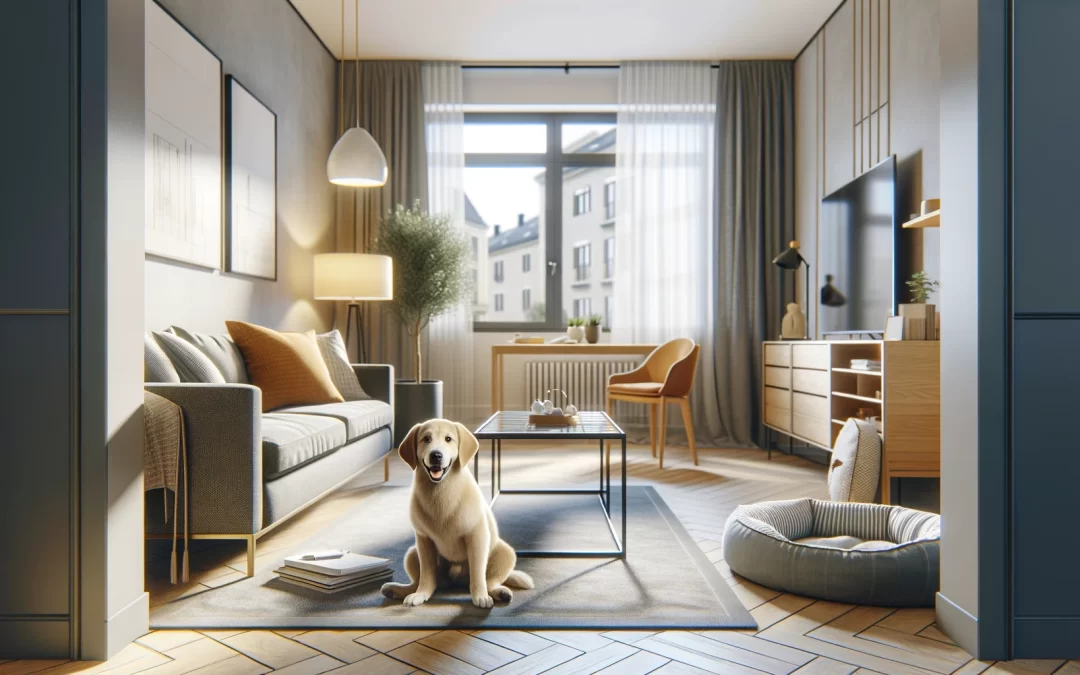Renting a home as a pet owner can present unique challenges, especially when it comes to navigating rental agreements and addressing habitability concerns.
In this blog, we will explore the legal considerations for pet owners renting property and provide advice on how to protect your rights while maintaining habitability in your rental home.
Understanding Habitability and Pet Ownership
Habitability is a fundamental aspect of rental properties, ensuring that they are safe, healthy, and suitable for human habitation. For pet owners, maintaining habitability extends to ensuring that their pets do not cause damage or create nuisances that affect the living environment.
When renting with pets, tenants must adhere to lease provisions related to pet ownership and take steps to mitigate any potential impact on habitability, such as keeping pets clean, well-behaved, and properly supervised.
Reviewing Lease Agreements
Before signing a lease agreement as a pet owner, it’s essential to review the terms and conditions related to pet ownership carefully. Some landlords may prohibit pets altogether, while others may impose restrictions on the type, size, or number of pets allowed.
Additionally, landlords may require pet deposits or pet rent to cover potential damages or liabilities associated with pet ownership. Understanding the terms of your lease agreement regarding pets is crucial to avoid disputes and ensure compliance with habitability standards.
Communicating with Your Landlord
Open and honest communication with your landlord is key to addressing any concerns related to pet ownership and habitability. Before bringing a pet into your rental home, notify your landlord and seek their approval if required by the lease agreement.
Provide information about your pet, including its breed, size, and temperament, to reassure your landlord that it will not pose a threat to habitability or property. If your landlord has concerns about pets, discuss potential solutions or compromises to address their worries while ensuring your rights as a pet owner are respected.
Mitigating Pet-Related Issues
As a responsible pet owner, it’s essential to take proactive measures to mitigate any pet-related issues that may affect habitability. This includes regular grooming and hygiene practices to prevent odors, shedding, and allergens, as well as providing appropriate toys, scratching posts, and litter boxes to minimize damage to the rental property.
Additionally, ensure that your pet receives proper training and supervision to prevent disruptive behavior that could disturb neighbors or violate lease provisions. By addressing pet-related issues proactively, you can maintain habitability in your rental home and foster positive relationships with your landlord and neighbors.
Legal Protections for Pet Owners
While landlords have the right to impose reasonable restrictions on pet ownership, tenants also have legal protections under fair housing laws and local ordinances. In some jurisdictions, landlords may be prohibited from discriminating against tenants based on pet ownership, and tenants may have the right to request reasonable accommodations for assistance animals or emotional support animals.
If you believe that your landlord is unfairly discriminating against you as a pet owner, seek legal advice to understand your rights and options for recourse.
Handling Habitability Concerns
If habitability issues arise in your rental home that are unrelated to your pet, it’s essential to address them promptly to protect your well-being and legal rights as a tenant. Notify your landlord in writing of any habitability concerns, such as mold, pest infestations, or safety hazards, and request prompt resolution.
Keep copies of all communication with your landlord regarding habitability issues, including repair requests and responses, to document your efforts to address the problem. If your landlord fails to address habitability concerns and neglects landlord’s repair responsibilities, consider seeking legal advice to understand your rights and options for recourse.
Seeking Legal Assistance
Navigating rental agreements and habitability issues as a pet owner can be complex, especially when disputes arise with your landlord. In such cases, seeking legal assistance from a tenant rights attorney can provide invaluable guidance and support.
An attorney can review your lease agreement, assess the validity of any pet-related restrictions, and advise you on your rights and options for recourse. They can also negotiate with your landlord on your behalf, represent you in court if necessary, and ensure that your rights as a pet owner and tenant are protected under the law.
Protecting Your Rights and Habitability
Renting a home as a pet owner requires careful consideration of lease agreements, pet-related restrictions, and habitability concerns. By understanding your rights, communicating effectively with your landlord, and addressing habitability issues promptly, you can protect your well-being and ensure a positive rental experience for you and your pet.
If disputes arise with your landlord or habitability concerns persist, don’t hesitate to seek legal assistance to assert your rights and protect habitability in your rental home. With the support of a knowledgeable attorney, you can navigate legal challenges with confidence and maintain a safe, healthy living environment for you and your furry companion.

